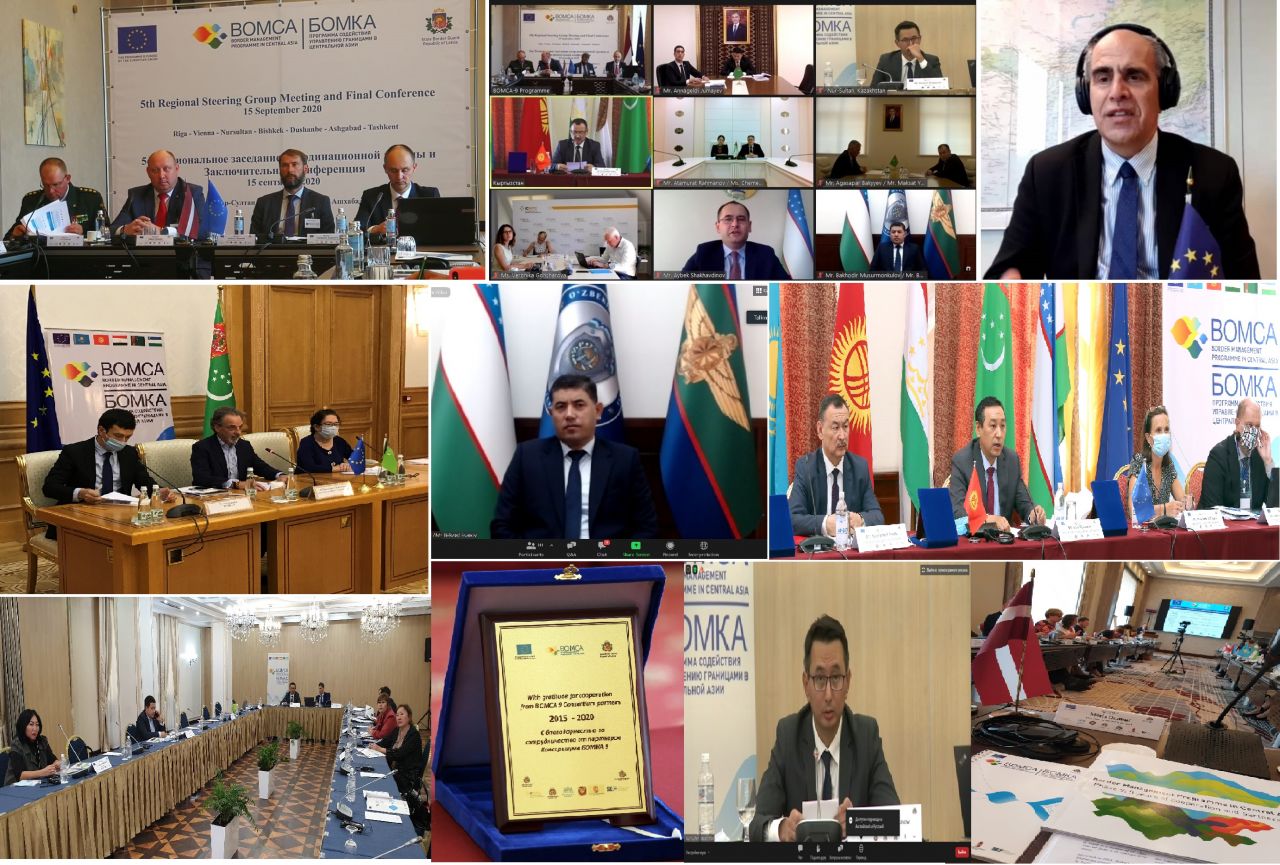The 9th phase of the EU-funded Programme on Border Management in Central Asia (BOMCA) held its closing event to summarise the achievements from over the five years of its implementation. The Regional Steering Group meeting and the Final Conference, held online, gathered over 100 high-level representatives of the BOMCA implementing Consortium, national border management agencies in Central Asia, EU Delegations, international organisations, and EU MS Embassies. During the final event, BOMCA presented and disseminated the project’s results and tools for further strengthening border management, migration governance, and trade facilitation measures in the Central Asian region.
The first BOMCA operations in Central Asia began in 2003, and since then, BOMCA has been playing a positive role in promoting cooperation among border management agencies through the concept of Integrated Border Management, as well as helping the countries of the region to approximate the border control practices to international and European Union standards. The European Union allocated EUR 40.1 million to BOMCA so far for the whole period spanning from 2003 – 2020; out of this amount, EUR 6.6 million was assigned to its 9th implementation phase (2015 - 2020).
H.E. Ambassador Peter Burian, EU Special Representative for Central Asia, opened the conference. He appreciated the joint work with the governments of the region, stressing that partnering for resilience and partnering for prosperity are closely linked with efficient and integrated border management: “regional cooperation and integration offer the best tools for addressing common challenges, and is instrumental in ensuring security and stability”. The keynote speakers from the State Border Guard of Latvia, Riga Technical University, and Customs Department of the Ministry of Finance of Lithuania reported on the capacity-building efforts, know-how exchanges, innovations, methodologies, and the working and training tools developed in the context of BOMCA Phase 9. The Central Asian delegates from the MFAs, MoIs, Border Guard, Customs, Migration, and Phyto-Veto-Sanitary agencies shared insights into their experiences and good practices on progressing the project-produced outcomes in the areas of national law enforcement capacities, legal and regulatory instruments, border control procedures and risk management systems, among many others.
Moving forward, the European Union confirmed its readiness to pursue successful cooperation with the five countries of Central Asia in the framework of the next – 10th Programme Phase, which will also include the Islamic Republic of Afghanistan. The future Programme on Border Management in Central Asia and Afghanistan will fully take on board the principles of the new EU - Central Asia Cooperation Strategy, specifically by extending regional cooperation efforts to Afghanistan, not only to address security matters but also to promote cross-border connectivity/trade potential. To this end, the European Union made a pledge of EUR 21.75 million for the 2020-2025 period.

